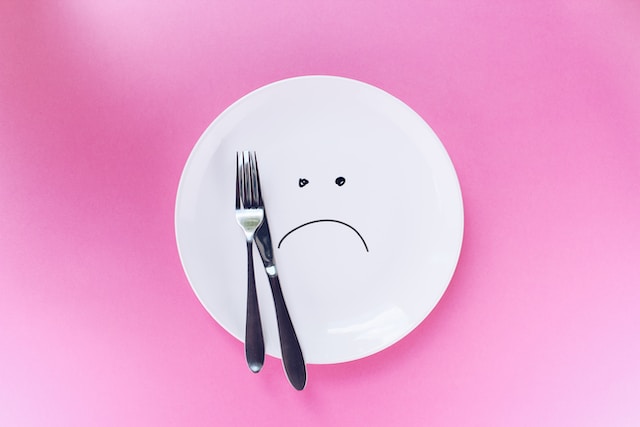Summary | Excerpt | Reviews | Beyond the Book | Read-Alikes | Genres & Themes | Author Bio

This article relates to Hot Springs Drive
 In Hot Springs Drive, main characters Theresa and Jackie attend a dieting support group. In the United States, commercial diet plans like these are a big business. The research firm Custom Market Insights estimates the industry was worth $135.7 billion in 2022 and predicts that it will continue to grow, with Herbalife, NutriSystem and Weight Watchers pegged as some of the biggest players.
In Hot Springs Drive, main characters Theresa and Jackie attend a dieting support group. In the United States, commercial diet plans like these are a big business. The research firm Custom Market Insights estimates the industry was worth $135.7 billion in 2022 and predicts that it will continue to grow, with Herbalife, NutriSystem and Weight Watchers pegged as some of the biggest players.
Fad and commercial diet plans have been around since at least the 19th century, and gained popularity in the 20th century. The 1950s and '60s saw some truly wild regimens. The "Drinking Man's Diet," one of the rare diet plans marketed to men, called for the consumption of fish, steak…and unlimited booze. The cabbage soup diet let dieters eat as much as they wanted…but the only allowable food was the sludgy soup. Advertisements in women's magazines touted cigarettes as a tool for staying slim.
The midcentury also saw the emergence of mainstream diets with more staying power. Weight Watchers was started by a housewife, Jean Nidetch, who'd had success with a doctor-devised diet and believed in the importance of social support in dieting. Her method involved meetings with fellow dieters to foster discussion and encouragement. Other major players, like Jenny Craig and Herbalife, would make their debut in the image-obsessed 1980s.
The 21st century has seen pushback against the diet industry with the rise of the body positivity movement and Health at Every Size, based on the idea that healthy habits matter more than the number on the scale. Much of this pushback has come from feminist activists who are sick of the way diet culture is relentlessly marketed to women. Researchers have found that 70% of college-aged women felt worse about their bodies after reading women's magazines. The Center for Mental Health Services says girls and women aged 12 to 25 make up 90% of eating disorder cases.
In response to this new wave of concern, Weight Watchers attempted a wellness-focused rebrand in 2018, changing its name to WW. Meanwhile, Jenny Craig, once a titan of the industry and worth hundreds of millions of dollars, filed for bankruptcy in spring 2023.
But it would be premature to say that American diet culture is faltering. As older big names shut down or pivot, new ones have come on the scene, like the app Noom, which claims to use insights from psychology to spur healthy weight loss, but which critics accuse of encouraging disordered eating. The FDA approval of the active ingredient in the diabetes medication Ozempic for weight loss, sold under the name Wegovy, has created a new interest in pharmaceutical solutions, but many users report quickly gaining weight back once going off the drug. Its newfound popularity has also led to shortages, resulting in off-label prescribing of Ozempic and some who need to take the drug for diabetes being unable to access it.
It's unclear what the future of the American diet industry holds, but it seems likely it will always exist in some form or another. The Drinking Man's Diet, however, is probably gone for good!
Sad face drawing on empty plate with knife and fork, from Thought Catalog via Unsplash
Filed under Society and Politics
![]() This "beyond the book article" relates to Hot Springs Drive. It originally ran in January 2024 and has been updated for the
November 2024 paperback edition.
Go to magazine.
This "beyond the book article" relates to Hot Springs Drive. It originally ran in January 2024 and has been updated for the
November 2024 paperback edition.
Go to magazine.
Your guide toexceptional books
BookBrowse seeks out and recommends the best in contemporary fiction and nonfiction—books that not only engage and entertain but also deepen our understanding of ourselves and the world around us.